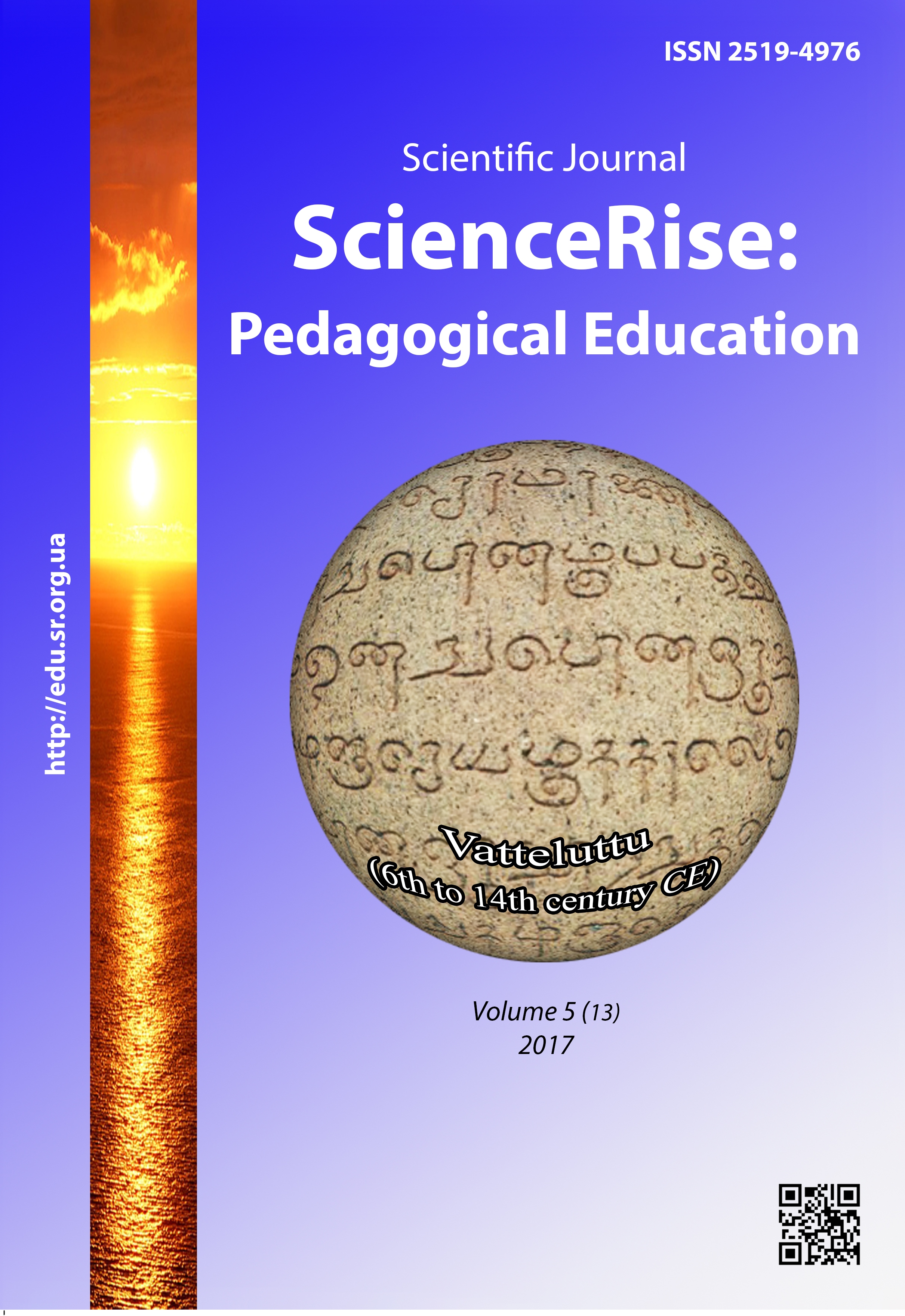Methods of determination of initial level of students' knowledges on basic disciplines at higher medical educational institutions
DOI:
https://doi.org/10.15587/2519-4984.2017.102930Keywords:
medical education, testing system, the input level of knowledge, medical schoolsAbstract
Authors propose the program, which determines the input level of knowledge of students in Ukraine medical schools with English as the language of studying. It assesses the level of residual knowledge in mathematics, physics and English and also gives recommendations for teaching in the group, taking into account the characteristics of specific educational group. The program allows the teacher to build a more successful educational process, which in the end, improves the overall result. For testing the students and teacher should be provided with personal computers with operational system Windows 98 and higher or Linux OS with graphical interface and support the Wine program. The questions (in English) pre-installed in the testing program and correspond to the program in physics of high school and to basic mathematical course. English questions do not include grammar checking, but created to check the meaning of written text and basic vocabulary. A significant advantage of the program is the ability to add and reduce the number of questions in the test, in case of, for example, lack of time, and teachers can change the questions themselves. The beginning and the end of the test set by the teacher. The program allows the teacher to build a more successful educational process, which improves the overall result
References
- Klyicheva, S. A. (2013). Adaptatsiya inostrannogo studenta k obucheniyu v universitete. Available at: http://conf.grsu.by/alternant/
- Bragin, Sh. B. (2013). Iz opyita prepodavaniya meditsinskoy biologii na angliyskom yazyike. Available at: http://repo.knmu.edu.ua/bitstream/123456789/735/1/689_online_konf.pdf
- Katsapov, D. V., Syirovaya, A. O., Shapoval, L. G., Grabovetskaya, E. R. (2013). Rol kuratorskoy i psihologicheskoy pomoschi v adaptatsii angloyazyichnyih studentov k obucheniyu v VUZe. Available at: http://repo.knmu.edu.ua/bitstream/123456789/735/1/689_online_konf.pdf
- Esli vash student-inostranets (2005). Available at: http://www.tstu.ru/book/elib/pdf/2005/popovain.pdf
- Zhbora, I., Stercho, I., Milevich, S. (2016). Testirovanie kak metod kontrolya znaniy studentov po himii v vuzah I-II urovney akkreditatsii [Testing as a method of control of knowledge of students in chemistry at universities of I-II levels of accreditation]. Molodoy uchenyiy, 3, 818–828.
- Avanesov, V. S. (1989). Osnovyi nauchnoy organizatsii pedagogicheskogo kontrolya v vyisshey shkole [Fundamentals of scientific pedagogical control in higher school]. Moscow: MISiS. 176.
- Seminskiy, I. Zh., Gutsol, L. O., Guzovskaya, E. V. (2010). Osobennosti ispolzovaniya testirovaniya dlya otsenki kachestva znaniy studentov v meditsinskom vuze. [The use of testing to assess the quality of knowledge of students in medical school]. Sibirskiy meditsinskiy zhurnal, 98, 42–44.
- Movchan, N. I., Bakeeva, R. F., Sopin, V. F. (2004) Standartizatsiya obrazovatelnogo protsessa posredstvom vnedreniya testovyih tehnologiy [Standardization of the educational process through the introduction of test technologies]. Vestnik Kazanskogo tehnologicheskogo universiteta, 2, 321–327.
- Altshuler, O. G., Kolesnikov, O. M., Pavlova, T. Yu. (2012). Sravnenie sub'ektivnyih i ob'ektivnyih otsenok kompyuternogo testirovaniya [Comparison of subjective and objective assessments of computer-based testing]. Vestnik Kemerovskogo gosudarstvennogo universiteta, 1, 192–197.
- Testy po angliyskomu [Electronic resource]. Available at: http://testuz.ru/
Downloads
Published
How to Cite
Issue
Section
License
Copyright (c) 2017 Ihor Chovpan, Ganna Chovpan, Liliya Batyuk

This work is licensed under a Creative Commons Attribution 4.0 International License.
Our journal abides by the Creative Commons CC BY copyright rights and permissions for open access journals.
Authors, who are published in this journal, agree to the following conditions:
1. The authors reserve the right to authorship of the work and pass the first publication right of this work to the journal under the terms of a Creative Commons CC BY, which allows others to freely distribute the published research with the obligatory reference to the authors of the original work and the first publication of the work in this journal.
2. The authors have the right to conclude separate supplement agreements that relate to non-exclusive work distribution in the form in which it has been published by the journal (for example, to upload the work to the online storage of the journal or publish it as part of a monograph), provided that the reference to the first publication of the work in this journal is included.







